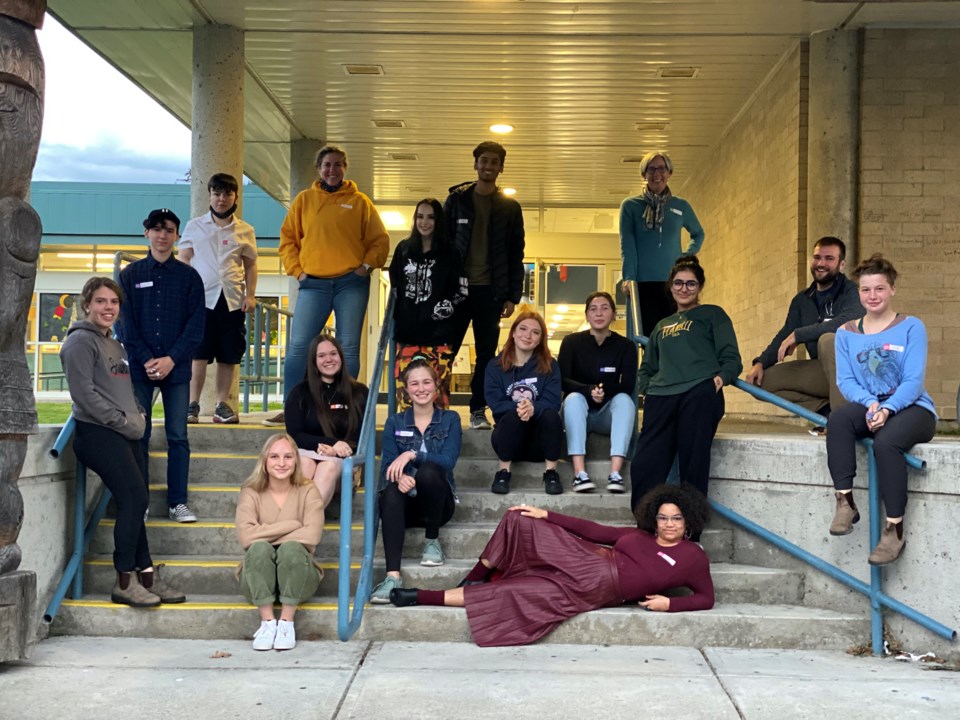Though it was late, dark and the night before a long weekend, the first cohort of the District's Squamish Youth Council excitedly met at Howe Sound Secondary for the second time since its members were appointed.
The goal of this meeting was to define a theme for their project.
Each of the members took turns defining a theme important to not only themselves but to all the youth of Squamish. Ideas from mental health to the climate crisis to accessibility bounced around the room, often leading to engaged discussions of how the topics overlapped in many aspects.
Despite the stereotype of youth being disengaged, these youth were passionate and lively.
Appointed members of the council serve on a 10-month term through June 2022. They will collaborate with municipal council, District staff, and partner agencies on initiatives that support the implementation of the Squamish Youth Strategy.
Fifteen youth were chosen between the ages of 14 and 24, each with diverse backgrounds and life experiences. The group meets once a month in person and engages with each other outside of the meetings on Google Classroom. Once the group determines a theme, they will work with local community partners to implement a project with a budget of up to $25,000.
The idea to have a youth council originally came from the youth strategy, said Mayor Karen Elliott. The strategy had been in development for numerous years and is meant to help youth and emerging adults in the community.“We had a group of youth that really helped steward that strategy into reality and one of their recommendations was a youth council,” said Elliott.
Harrison Cohen, a student at Quest University who serves on the council, said that climate action was a big part of why he wanted to get involved on the council.“I feel like [the climate] did contribute to a lot of my anxiety growing up,” said Cohen. “I'd love to just make it known that the youth here do care and that it is a priority that we have a livable planet on a global level.”
Cohen said Squamish could set a good example of how to be “good stewards of land” and also pay attention to Indigenous voices when it comes to taking care of the environment.Additionally, Cohen said that being one of the older members of the council, he also wanted to ensure that he was helping to elevate and listen to all the ideas in the room.
Similar to Cohen, Elliott said that listening to the youth was an important building block for her involvement in the council.“We saw very clearly through the youth strategy that they were asking for a better connection to decision-makers and having some agency in the decisions that are being made about them and about how we support them in our community,” she said.
And, moving forward, Elliott said she wants to ensure that the youth in the community have a clear path to engagement.“I think it's really important that we start to plant the seeds of civic engagement in these youth. There's a lot of change that is coming in their lifetime. And it's important that they know how government works, how decisions are made, so that they can see where their voice can influence the process.”
“Most important to me, while this youth strategy is being implemented, I wanted a place for future mayors and councils to be able to turn to hear that youth voice. And so my goal is to make sure that this program, by the end of its first year, can run on its own.”


